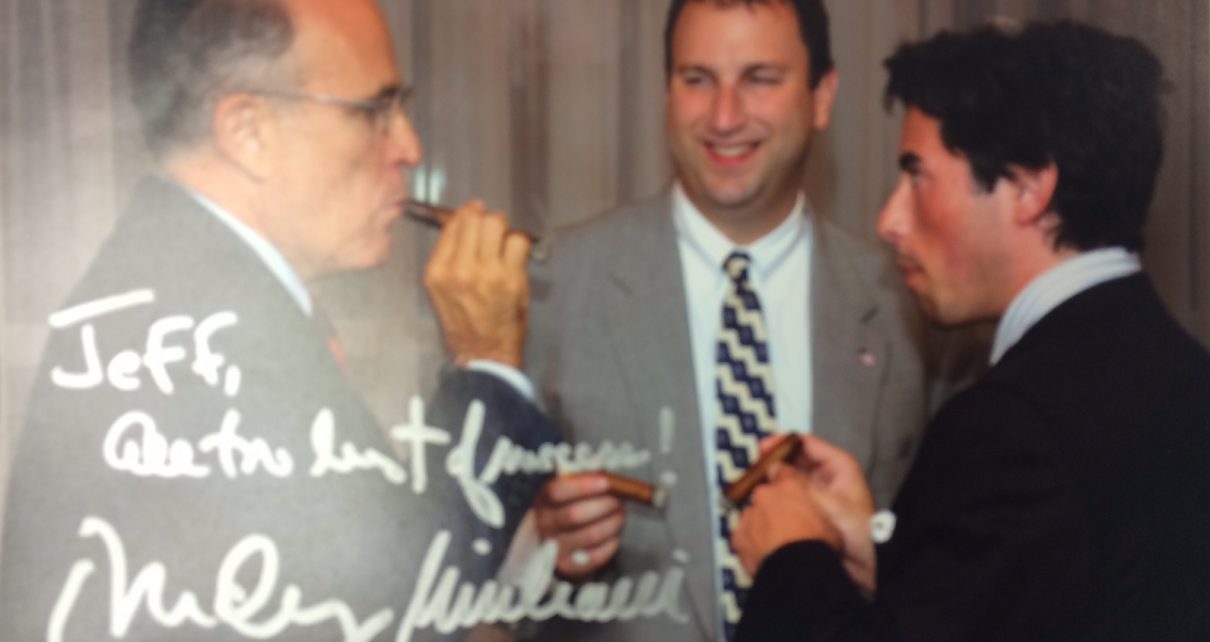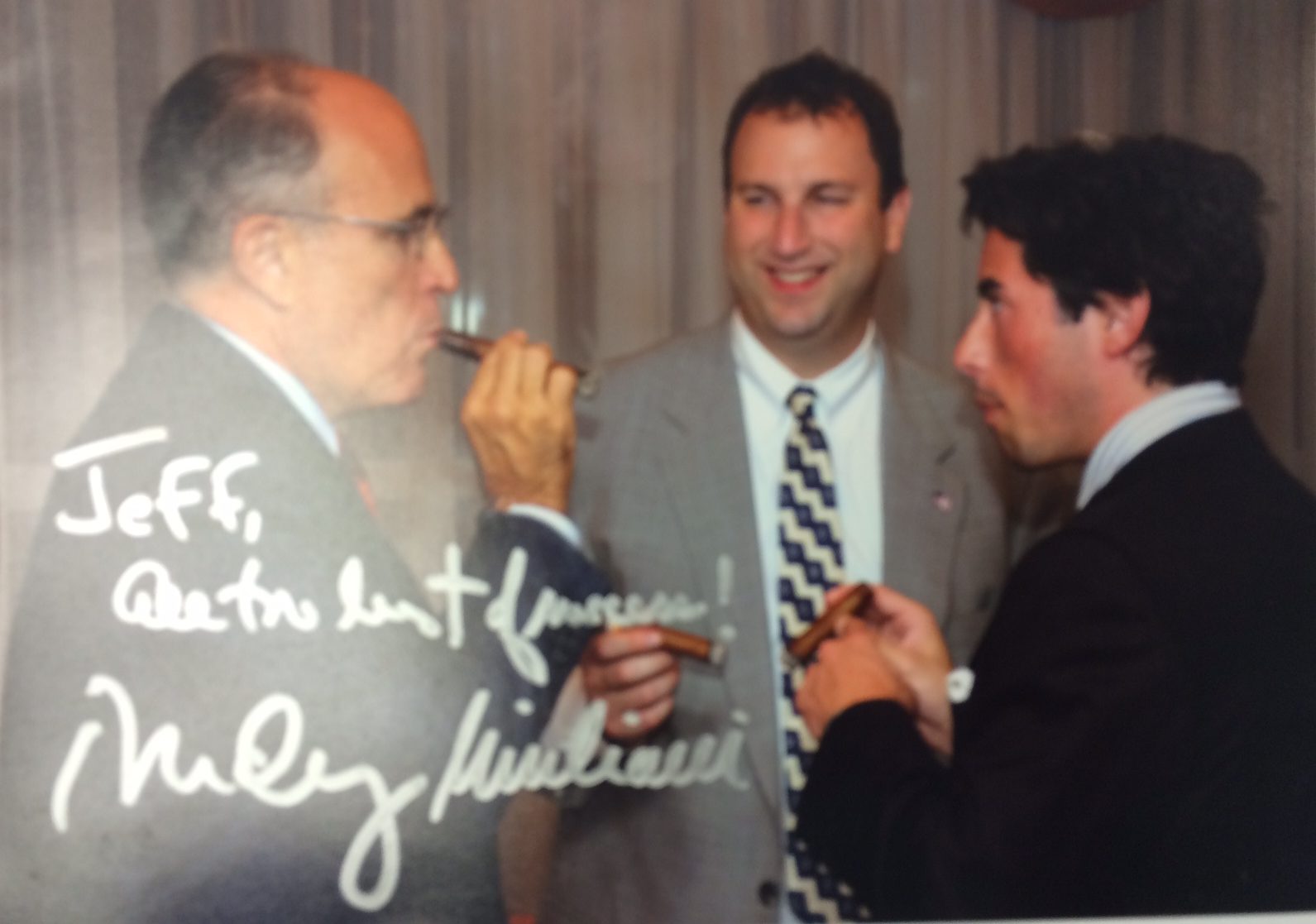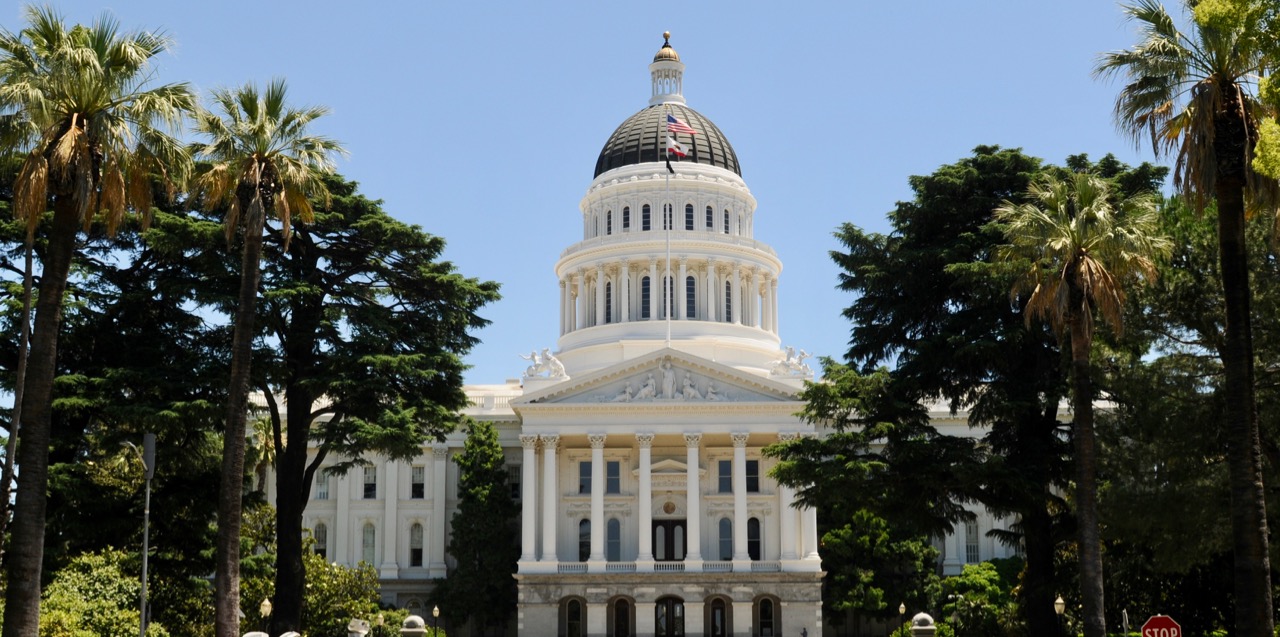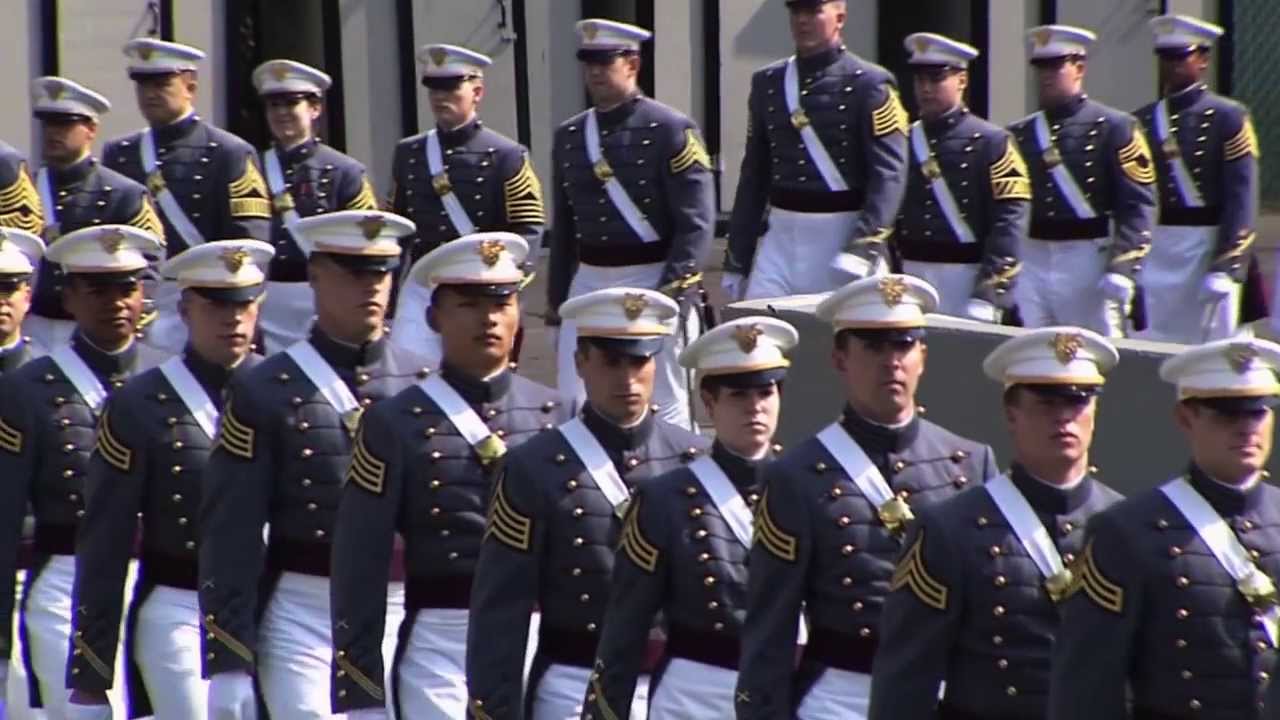
Three Personal Interactions with the Media’s Darkest Two Years
How RussiaGate turned my fellow journalists into hypnotized, suggestible lunatics
By Ken Kurson, March 26, 2019 12:20 pm

If you heard a primal scream emanating from 22nd Street yesterday, that was me reading the Vanity Fair headline “The Hard Truths and High Cost of the RussiaGate Scandal.”
We have endured a ton of awful reporting over the last two years. To the point, in my opinion, that the ability of our democracy to function has been compromised. But it’s the utter hypocrisy and the dispiriting, nearly sociopathic lack of self-reflection that we’ve seen from the worst offenders in the wake of the Mueller Report’s total exoneration on collusion and near-exoneration on obstruction that has most infuriated me.
Press play to hear a narrated version of this story, presented by AudioHopper.
As a bit player on the fringes of some of this nonsense—I worked for Jared Kushner as the editor of his newspaper and have remained in close touch with him—I have seen first-hand how out of control and just plain stupid a bunch of the reporting has been.
I have watched excellent journalists on the left be vilified, ignored, blacklisted, and even accused of treason (you know that’s a death penalty offense, right?). It’s been four days since we learned there would be no prosecutions and two since the sainted Bob Mueller, viewed by the left as the most unimpeachable American since George Washington, found “no evidence of collusion between Trump campaign and Russia.” I’m still waiting for the apologies to flow, from Vanity Fair among a dozen others. But I won’t hold my breath.
I’ve been a journalist for 26 years. Much of that time has been spent in controversial fields, including investigative work. And just plain being a conservative in a profession totally dominated by not just liberals, but liberals who live within a mile of each other and audition constantly for the approval not of their readers or viewers, but for each other. I have never seen the kind of mass hysteria, shoddy thinking, lazy conclusions, and worst of all, intentional political bias.
Here are my personal interactions on this front, each one of them totally ridiculous.
Exhibit A: Buzzfeed
Before Russiagate began, I got an early inkling that disbelief would be eagerly suspended so long as the target of that suspension was Donald Trump. When I was editor-in-chief of the New York Observer, then owned by Trump’s son-in-law Jared Kushner, I recruited a fellow named Mikhail Klikushin as one of 100 or so opinion writers of all political bents. I’d known Klikushin for three or four years at that point, and I knew him to be a thoughtful guy, incredibly well-read with a graduate degree in history from Novosibirsk State University in his native Russia. He had lived in the States for 10 years or so by that point. His insights about Russian politics and all of eastern Europe were refreshingly counterintuitive and also accurate. So I asked him to consider contributing to the Observer, since I knew no other Russians or people knowledgeable about that important part of the world.
Somehow BuzzFeed writer Miriam Elder developed the idea that Klikushin didn’t exist. Her evidence was that an Internet search of his name didn’t produce a sufficient number of clips in other publications. Because that is the way journalists judge other journalists, she concluded that he was an invention either of the Observer itself or someone trying to use the Observer for nefarious pro-Russian ends. In about February 2015, Elder contacted me and asked if I knew whether Klikushin actually existed. It was an absurd question, I told her. I’d known him for years. He came to my son’s bar mitzvah with his young family; other Observer employees there had met him. He came to an Observer book signing and a dozen other Observer employees had met him there. I thought that was the end of it: reporter asks me if someone exists, I tell her he does, end of story.
But that’s not how things work at BuzzFeed. Not only did they seem to know more about what the president instructed Michael Cohen to do than Mueller, with all his puny little subpoena power, but they apparently know better than I do whether the person standing in front of me actually exists. It was surreal. No amount of explaining to her that I knew the guy, knew him well, and that he is who he says he is, would suffice. She insisted that I produce him for an interview or BuzzFeed would run a story claiming that the Observer was publishing the work of a nonexistent propagandist.
BuzzFeed editor in chief Ben Smith called me. He’s a buddy, and he told me in an empathetic way that he was calling me as a friend to explain the humiliation I was about to face if I didn’t come clean and admit that this guy didn’t exist. I told him exactly what I told Elder. That of course he exists, I’ve seen him constantly for several years, in person and that her story idea was ludicrous. You would think that would end it. But no, her story ran suggesting that the Observer had invented a pro Russia writer who didn’t exist. Her evidence was “He has no online presence — in English or Russian — beyond the stories he has written for the Observer” and “Klikushin’s contact information is impossible to find online.” I was dopily portrayed as a naïve dupe: “[Kurson] says he has met the writer face-to-face.” This was absurd. It’s not like I ran into him in a dark alley and took his word for it when he said his name to me in hushed tones. I knew the guy for years, and as I had told Elder and Smith, he had been at a few public functions and met lots of other people.
Immediately after the story appeared, former Observer reporter Hunter Walker called me to say that he didn’t understand what Elder had been talking about because the instant he read her story, he googled the last name and found his son on the honor roll at his middle school in New Jersey. “Why didn’t you just tell her that the guy exists?” he asked me.
Sigh.
I told Walker I had told Elder exactly that and given her all sorts of specifics including that I’ve seen him weekly for four years and that he’d attended events where tons of other people had seen him. Then why would she write that story? Walker said he didn’t get it. I told him I didn’t get it either.
It was an early preview of the mass insanity to which the world’s journalists were about to succumb. Her story was 100% wrong, easily provably wrong, had she just looked for the same Google results Hunter had found. But because Elder and Smith were on the side of a narrative that hated Trump, and I was easily portrayed in the narrative as pro-Trump, the facts didn’t matter. No correction ever ran.
Mindbogglingly, BuzzFeed eventually sent a reporter to this poor guy’s apartment. For a follow-up story about a guy almost no one had ever heard of who wrote for a tiny paper. They knocked on his door to demand an interview. He declined. So now, having seen and spoken to him at his door, instead of running an article that said, “We were wrong – the guy we suggested didn’t exist actually does exist,” BuzzFeed ran a story titled “Observer Writer Who Attacks Kremlin Foes Won’t Answer Questions.”
This time they conceded his existence but suggested that his last name somehow proved the dubiousness of his character. It was absurd. But again, because they were at the popular table – aligned with those who detest Trump—and I was portrayed as an unthinking dupe of Jared Kushner and possibly a sinister force on behalf of Trump, even the fact of meeting the guy in person was not enough to entirely undo the ludicrous narrative.
Exhibit B: Foreign Policy Magazine
The next ridiculous example that touched me personally came from Foreign Policy magazine. In Summer 2017, the reporter Jenna McLaughlin got the idea that the Observer was somehow either knowingly or unwittingly being used as a conduit for Julian Assange, the founder of WikiLeaks. She had unearthed documents that “proved” I was in contact with Assange.
I told her that was bullshit. I never spoke to, emailed, or communicated with Assange in any way. Never initiated a contact with him nor received one. A total denial.
Imagine my surprise when her story ran and said, “Ken Kurson, the newspaper’s editor in chief — along with a freelance writer he’d hired — helped arrange a ‘no-holds-barred’ interview with Assange that October.”
This is false. I didn’t “help arrange” anything with Julian Assange. I never contacted him or anyone associated with him.
Her big gotcha reveal established that a freelancer for the Observer had apparently cc’ed me on an email that he had sent to Assange seeking an interview.
“My editor Ken Kurson (kkurson@observer.com) and I are very interested in an interview with Julian Assange. This would be a cover story.… We will be in London the first week of October,” wrote Jacques Hyzagi, a freelance reporter for the Observer, to a press consultant who arranged interviews for WikiLeaks.
This is ridiculous. Anyone can cc anyone on anything. If I email my buddy my big plot to rob a bank and then cc the pope, is the pope somehow implicated in this plot?
Elsewhere in McLaughlin’s story, she describes
a series of exchanges between Hyzagi and the WikiLeaks representative indicated that a meeting involving Kurson and Assange was in the works; at one point Leonardo DiCaprio was invited to tag along, according to emails obtained by FP. (DiCaprio did not end up attending.)
She never asked me about DiCaprio and I have zero recollection of ever receiving an email discussing him. It’s just as likely that I never read the reporter’s email to Assange, but even if I had, so what? He was emailing a much-discussed public figure in search of an interview. That’s what reporters do. Why would it be controversial if I had read that email? He surely only cc’d me to give the publicist the impression that the editor was in favor of the story. I got dozens of emails exactly like that every week, and this interview was from October 2014, years before WikiLeaks became a factor in the 2016 campaign. There was absolutely no reason why I should have remembered being a cc on someone else’s email, and in fact I never responded to that email. To this day, I have never contacted Julian Assange or communicated with him in any way. And yet there in Foreign Policy magazine, a respected journal of thought, I stand accused of making the Observer “a friendly outlet for the 2016 Russian hackers.”
The story notes that “Kushner has long denied any collusion with the Russian government,” which we now know that the special counsel considers settled fact. She goes on to say “but his newspaper proved a favored conduit for hacks, which the U.S. intelligence community says were carried out on Kremlin orders. The Observer was not the only outlet that received exclusive access to Guccifer 2.0 documents — or those from other outlets such as DC Leaks, widely believed to be part of the same campaign — but it was the only one owned by someone who was part of the Trump campaign.”
Deploying one of the favored tactics of the RussiaGate promoters, McLaughlin uncritically quotes intelligence officials to help smear Kushner.
“This would be of significant interest to law enforcement and investigators,” John Sipher, a former CIA officer who worked in Russia, wrote in an email to FP. Kushner and his connection to WikiLeaks are now back in the crosshairs of congressional investigations, though there’s no indication his ownership of the Observer is part of that probe.
That probe has concluded with no evidence of collusion. McLaughlin’s allegations of “Kushner and his connection to WikiLeaks” are false. And I still have never communicated in any way with Julian Assange. (Not that there’d be anything wrong with it if I had.)
Exhibit C: Accusations about the National Enquirer
The third ridiculous example is so stupid that I literally don’t even know what it was supposed to be accusing me of. If it had occurred, I would have been happy to admit it.
In August 2018, reporter Tara Palmeri from ABC News messaged me via Facebook to say she had a source claiming I had gone to the National Enquirer to sit in on editorial meetings on behalf of Jared Kushner. I told her that was false. She went back to her source and apparently he or she doubled down because Palmeri phoned me on August 26 to say that her source was certain that I had attended editorial meetings. “Did you forget that you did this?” she asked me. “No I didn’t forget. I never attended a news meeting. I have a crystal clear memory of my visit and whoever you’re speaking to is misremembering.”
I told her I had gone to the National Enquirer one time and took a tour of their office because the Observer was struggling with that horrible “pivot to video.” I wanted to get tips from Enquirer editor Dylan Howard about what they were doing right that we could copy.
That’s it. My one visit. He showed me their video room with its green screen and walked me around the office. I sat in on zero meetings. Palmeri evidently took my word for it and didn’t report on it.
Somehow, six months later the exact same thing happened. The Daily Beast got in touch with me and said, we have information saying you were at an editorial meeting at the National Enquirer. I told them exactly what I told Palmeri and exactly what I just wrote here. Nope, I never was at an editorial meeting, but I did visit to see their video operation.
A couple days later a story ran saying “Observer Editor in Chief Ken Kurson, a close friend of Kushner’s, had even visited the AMI offices in 2016, and sat in on an editorial meeting.” The story goes on to note, “In a brief telephone call Thursday, Kurson told The Daily Beast that although he had visited the AMI offices, he had never sat in on an editorial meeting.”
The insinuation was obvious. The National Enquirer had been implicated in the catch-and-kill part of the whole scandal and different sources were trying to make it appear that the President’s son-in-law was sending in his errand boy to babysit Trump’s interests at the Enquirer. It was false. I said on the record it was false. But that’s what kept happening throughout the coverage of the Russia story. An unnamed source was alleged to have said something, and the person about whom it was said would say on the record that it wasn’t true and they would be held up as equivalent.
When I learned journalism, a named source was always given priority over an unnamed source and reporters were discouraged from using unnamed sources at all, for obvious reasons. There’s no accountability if an unnamed source presents an untrue story that simply advances his or her self-serving goals.
Here I was as a journalist saying on the record that I attended no meetings and that’s presented as an equivalent with some unnamed source who was already discredited when he or she told ABC the same thing. What’s even more ridiculous is that I would have been perfectly happy to have been “caught” at an Enquirer editorial meeting. So what if I had gone? I visited tons of other publications while I was editor of the Observer and plenty of other journalists came to visit us. There’s nothing wrong with that.
There were many more instances. Snarky asides, jerky accusations. One person I worked with asked me every single day what I would do when Jared Kushner was indicted and cautioned me to keep my distance. This is not a pleasant thing to hear about a friend. Gawker called a bunch of my contacts to ask for more details about a tip they’d gotten that I’d been to Russia with Rudy Giuliani in 2014. When they finally called me for comment on the nearly completed story, I told them the trip was in 2004, not 2014, and that I’d written about the trip so it was hardly a secret. To Gawker’s credit, no story ever ran.
* * *
Journalism is a tiny clique. Because it’s populated by people with, by definition, a platform and the ability to communicate, the world at large tends to think there are more of us than there are. But it really is a Mean Girls situation where being cast out of the Plastics is the worst thing that can happen to you. The fear that journalists have over expressing a point of view at odds with that of their peers is probably not all that much greater than any individual’s fear of going against his prevailing group. But the cost is so much greater.
The costs weren’t so high over my experiences. I’ve always been unpopular and badly thought of by my peers. That goes way back to my earliest days in journalism, when I went against the grain by standing up for James Cramer when he was accused of touting stocks or when it emerged that I supported George W. Bush at an Esquire Christmas party — at an apartment at Trump World Tower, ironically—a colleague almost punched me out. So I’m used to not being in the club. By the time it was revealed that I worked on Donald Trump’s speech to AIPAC in 2016—a situation that I’ve admitted I handled badly—the narrative about me had already been set in stone for years. So it didn’t cost me all that much in terms of stature or friendships because I never had too much of either to begin with.
But where it really has done lasting harm to our democracy was the way the dominance of the collusion narrative marginalized dissenting left-leaning voices. Many brave journalists— ferociously led by Glenn Greenwald but also including Matt Taibbi, Aaron Maté, and Michael Tracey—were literally blacklisted from MSNBC for declining to toe the RussiaGate line. As Greenwald correctly pointed out on Fox the other night, where he is relegated to appear since his MSNBC banning, that network, which is constantly criticized (sometimes correctly) as being a propaganda network for Trump, regularly features dissenting guests, as with Tucker Carlson’s memorable debate with Adam Schiff. That’s how news is supposed to work. You’re supposed to welcome different points of view. The fact that dissenters were banned from MSNBC and CNN is not just discouraging, it’s dangerous.
But it wasn’t just the outright bans. Much more sinister is the way this one story crowded out all of the other important news.
I can now reveal that there were those within the White House who were happy that RussiaGate was taking up so much oxygen. They knew it was fake, and that painful as it was, it would eventually be discovered to be fake. And in the meantime—a meantime that lasted two fucking years—they could appoint whatever judges they wanted, repeal whatever regulations they wanted, and basically act without the media providing its traditional check on executive power.
I wrote about this phenomenon almost a year ago. On June 8, 2018 The Nation’s Katrina Vanden Heuvel appeared on Brian Lehrer’s program on WNYC. She tried to make the point that the Russia narrative, of which her magazine and especially Maté had been skeptical, was crowding out every other progressive priority. I wrote:
“Katrina vanden Heuvel on WNYC made a very persuasive case that the media’s obsessive focus on the Russia investigation has crowded out all other issues important to progressive activists—you can’t learn about the plight of women in Africa because it’s Night #200 of RussiaGate on MSNBC.”
500 witnesses. 2800 subpoenas. It’s been nearly two years of this national obsession with something that has officially been declared a nothingburger. I fear we have learned almost nothing from the experience, exactly as we did from the Lewinsky episode and the uncritical reporting on WMDs. (Greenwald has called Rachel Maddow the Judith Miller of this episode, and noted that unlike Miller, who I personally saw shunned at Michael’s because of her credulous Iraq reporting, Maddow will continue to rake in her $10 million a year).
Listening to Katrina Vanden Heuvel last summer express pain and fear about all the truly important things that had gone uncovered, I wondered if we’d ever get the profession back on track. And then, as if a parody of the very point she was making, the host took a call from a listener. The man attacked her as an asset of Russia and called her husband a shill for Putin.
- Democrats in Tied San Jose Congressional Election Try to Stop the Recount - April 19, 2024
- Anatomy of a Smear - March 21, 2024
- Reid Hoffman Channels Sam Bankman-Fried - January 9, 2024





Might you have told me this upfront? ” I’ve always been unpopular and badly thought of by my peers…a colleague almost punched me out. So I’m used to not being in the club.”
Is it treacherous enough that it needs to be eliminated.